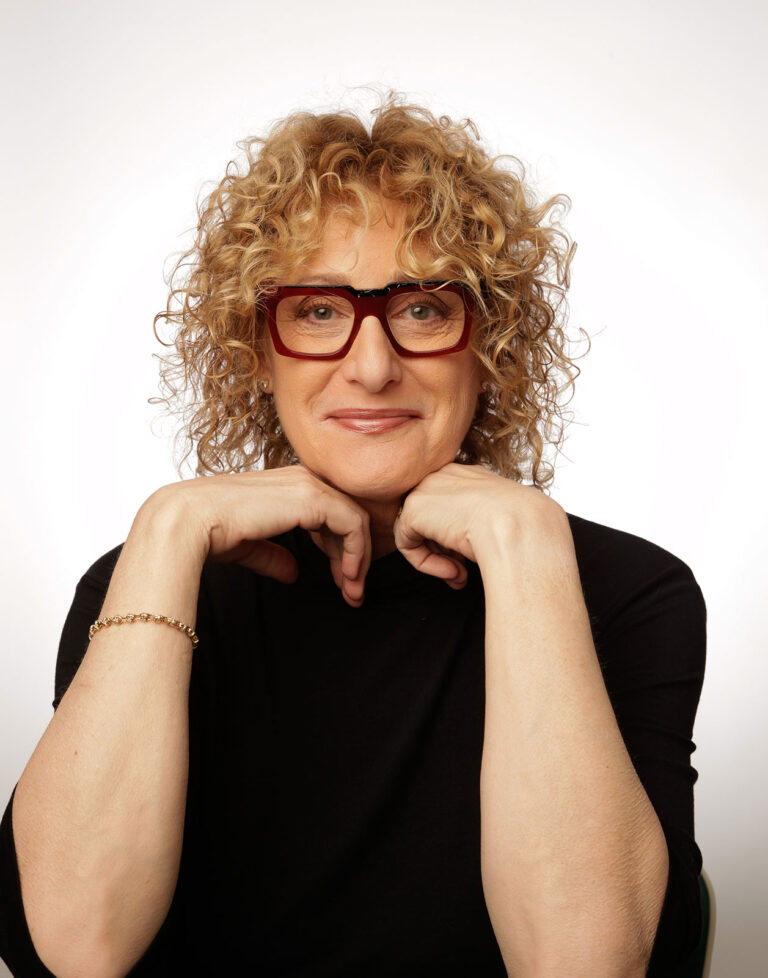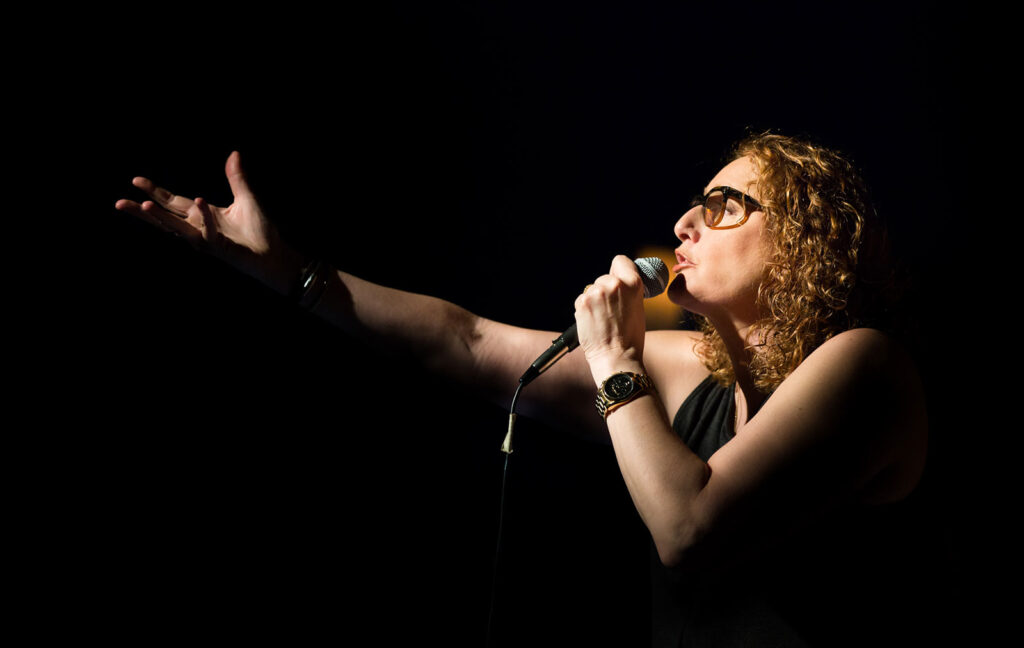- 848.932.7474
- info@rutgersalumni.org
by Christa DiMaio Richie CCAS’99 GSC’05
In the late fall of 1981, Judy Gold RC’84 was a sophomore living in Campbell Hall, a six-floor residence building on the College Avenue Campus overlooking the Raritan River. It was the end of a term, and Campbell Hall had a reputation as a “party place,” especially during the holiday season when students would pull pranks on one another and plan “Secret Santa dares.” This tradition involved inspiring students to shove notes under doors filled with requests that were sometimes embarrassing and in Judy’s case, it helped launch a career.

The 1980s were a different time, and Judy, who is Jewish, was dared to “dress for church, wear a cross, carry a bible and sing ‘Oh, Come All Ye Faithful.’” Judy tells the story of after having done this deed, she received a book, Jewish in Suburbia. She confronted Howard Rosenstein, her preceptor, turning her humiliation to humor as she tore apart the gift and what she saw as the motivation behind it. This animated rant may have inspired him to encourage Judy to take that wit to the next level and perform. He put a note of his own under her door with a two-day deadline — daring her to do something she had never done before and deliver five minutes of stand-up comedy using everyone living on that floor as material.
She was told she would have two days to prepare. She tells the story, excited, still, some 40 or so years later. She started writing and practicing right away—“I swear to God it was like God had spoken to me…I didn’t go to my classes; I wrote jokes all day.” In her room, Judy wrote the jokes she would perform with a microphone and a stand in the lounge of Campbell Hall just a few days before the end of the term and right before Christmas.
The night she delivered her first comedy act, Judy went to the student lounge, and in a room filled with other students from her floor, she let go and delivered the lines, and as she tells it, “I got my first laugh, and it was like an out-of-body experience. I had never felt like that about anything at any time in my life. I felt like I was looking down at myself; it was the most unbelievable feeling, and I was like, this is it. So Rutgers was a huge part of my career.”
Her Career
Judy is easy to talk to and a good listener. She doesn’t interrupt, and she is funny—all the time. Yet, as she describes what came next in her career after that impromptu comedic performance, there is an element of seriousness. After that came the Campus Comedy Show—a campus event where comics came to Rutgers, and Judy got a spot performing on campus. At that show, Bill Scheft, who wrote for Late Night with David Letterman, told her she was really funny. Her mother also came to the campus show, and it was one of her proudest moments when a woman sitting nearby who had been talking to her during the performance said, “I was in Vegas a few weeks ago, and I met Don Rickles’ mother,and now I met Judy Gold’s mother.”
She always credits Rosenstein for getting her started in comedy and for the early days of her first performances. “It’s essentially because of Howard Rosenstein daring me to do this; that’s how it all began.”
She knew she wanted to make people laugh for the rest of her life, and post-Rutgers, Judy had her own Off-Broadway shows, The Judy Show—My Life as a Sitcom and 25 Questions for a Jewish Mother. She appeared on the Arsenio Hall Show and All-American Girl. She also had a role on The Drew Carey Show and 30 Rock. She is also known for her role as the host of At the Multiplex with Judy Gold. She also won two Emmy Awards for writing and producing The Rosie O’Donnell Show. With her podcast It’s Judy’s Show with Judy Gold, she makes a difference, sounding her voice in matters others avoid.

Comedy as Art
Judy describes comedy as art. She says people think it is easy to get in front of an audience and tell jokes, but there is much more to it. “Comedy is an art form,” Judy adds, “George Carlin always said, you know, it’s the comedian’s job to find the line, cross it deliberately, and then make the audience happy you did.” This way of engaging an audience explains the success Judy experienced after Rutgers. “You have to deliver comedy in just the right way, or else it will fall flat. One syllable can ruin a joke or one too long of a pause, which is why we try out our material in front of an audience, and when it works, when I get a laugh for a new joke, it makes it all worthwhile.”
In listening to Judy, one can see the connection between her view of comedy and her major in college, music. In the comedy world, people often refer to how every comedian wants to be a musician, and every musician wants to be a comedian. Judy also sees that—“A lot of comics are musicians, you know, and some of them are artists. In both of these, it’s about creative art and timing, so there’s a lot of musical comedians.”
In her work, Judy harnesses the power of comedy as a tool, creating her own artistic comedic “music” to shed light on today’s absurd and subversive ideas. She sees comedy as a powerful means to connect people, especially in times when “we’re all trying to be silenced by one thing or another.”
This ability to evoke emotions and connect to others, whether humorous or serious, is a quality of both comedians and musicians. Both strike a chord with the audience and how that is perceived, good or bad, rest on timing and whether they can relate. Judy sees this potential to bring people together in her comedy, “Satire and humor can change the world.”
Photo credit: Todd Huffman